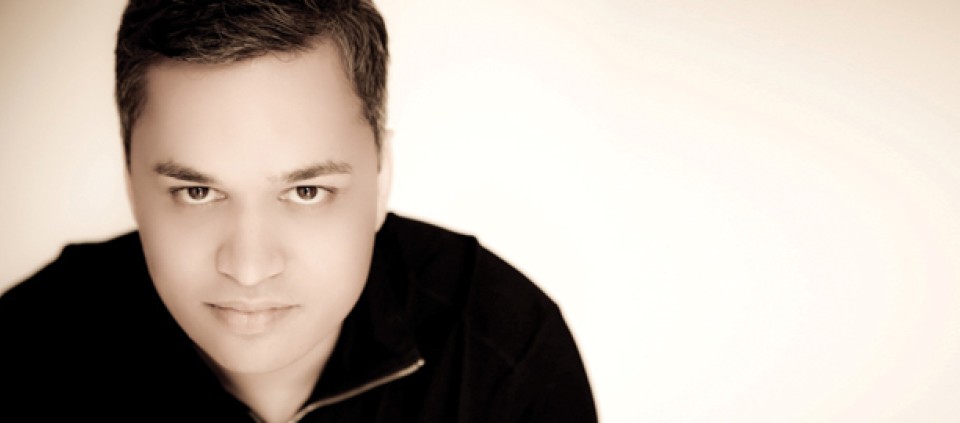Just Breathe

I’ve been interviewing healers and spiritual teachers for a while now, and when I ask them how to live a healthier and happier life, many offer the same answer: Meditate.
I hate that answer. When I was 19, I attended a 10-day meditation retreat that necessitated giving up my worldly possessions for the length of the stay, not talking, not making eye contact with anyone, and sitting in silence from 6:00 in the morning until 9:00 at night, with short breaks for meals and meditation lectures. By day two, I was like a prisoner of war planning the Great Escape. One morning after breakfast, when no one was looking, I fled the retreat in a frenzy; I just couldn’t sit in silence for 10 days and do nothing. Okay, so maybe “fled” is somewhat of an exaggeration, but the bottom line is that I couldn’t take it anymore. I’m just not a fan of meditation. An admirer, yes, but not a fan.
But according to Panache Desai, the spiritual teacher and inspirational visionary who chatted with me during our Kripalu Perspectives podcast, you don’t need to meditate to live a healthier and more joyful life—you just need to incorporate one of the essential elements of meditation into your day.
“Watch your breath,” says Panache, “the inhalation and the exhalation.”
According to Panache, sitting with eyes closed in total silence for 20 minutes in the morning and the evening isn’t necessary to reap the benefits that come from attending to this extremely simple practice.
"You can do it at work, in your car, anywhere, anytime,” he says. “Awareness of your breath anchors you in the present moment. You relax; you become spacious. You feel your emotions through to completion. People’s lives are transformed.”
Sounds a little too good to be true, but I have to admit that when it occurs to me that I could be paying attention to my breath, what I often notice is that I’m holding it. Why do I do that? Maybe I’m bracing myself, creating the illusion of self-protection. If I don’t breathe fully, I don’t have to experience life—in all its pain and complexity—fully. But Panache believes that can be a slippery slope.
“The adverse effect of not being aware of your breath is stress,” he explains, “which is a precursor to disease. Stress is resistance. You’re not fully present for what you’re experiencing. In order to experience life in all its fullness, watch your breath. Everything becomes available to you then. Life becomes a meditation.”
That doesn’t sound so bad—just watching your breath throughout the day. I can do that. And I’ve begun to. When I have the thought, “Notice your breath,” I often realize I’m breathing shallowly. What happens next is that I consciously deepen my breathing. What happens after that is that I begin to feel more relaxed. What happens then is that life seems more manageable, hopeful, like things are going to be okay.
You know what? This is my kind of meditation. Sign me up.
Portland Helmich is the creator, host, and producer of the Kripalu Perspectives podcast series. She has been investigating natural health and healing as a host, reporter, writer, and producer for more than 15 years.
© Kripalu Center for Yoga & Health. All rights reserved. To request permission to reprint, please e-mail editor@kripalu.org.
Portland Helmich has been investigating natural health and healing for more than 15 years, as a host, reporter, writer, and producer.
Full Bio and Programs